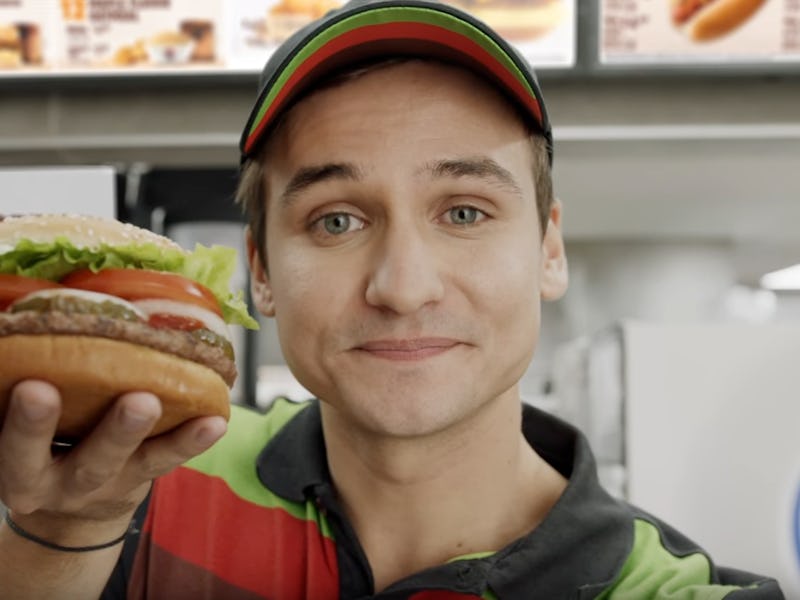Most of the time, when people say that there “Ought to be a law,” they’re wrong, but this week Burger King revealed a new ad that could very well provoke some real legislative backlash — and probably should. The 15-second spot laments that it lacks the time to properly explain the Whopper, then attempts to kick the remainder of the ad over to the viewer’s own Android devices. By saying the passphrase, “OK Google,” they hope to wake up viewers’ Google Home setup, or their Android phones and tablets, with the question, “What is the Whopper burger?”
We’ll point out up front that Android has a Trusted Voice option which should, if working, make it impossible for the burger kid to wake a viewer’s phone. We’ll also point out that in over a dozen tests at high speaker volume, the ad was unable to wake a Nexus 5X phone and issue a voice command, both with and without Trusted Voice enabled.
When it is made, the query brings up a regular Google search result — so, it doesn’t look like there’s any synergistic marketing going on with Google itself.
The ad is clearly meant as a stunt, rather than a real indication of Burger King’s plans for future campaigns, but it could still provoke some real reflection on how advertising is progressing in the connected age. Google recently had to explain that mentioning Disney’s Beauty and the Beast was not an ad but a value-adding feature, and Assistant has been criticized for integrating too many Google payment and shopping options. Microsoft has also been under scrutiny for their ad practices, like tracking user behavior and, most recently, integrating ads into Explorer.
Burger King is also learning how easily an ad like this can itself get hijacked. Since Google Home pulls its definition of the Whopper from Wikipedia, and anyone can edit Wikipedia, at least briefly, pranksters have already inserted misinformation about Whoppers containing human flesh and cyanide.
